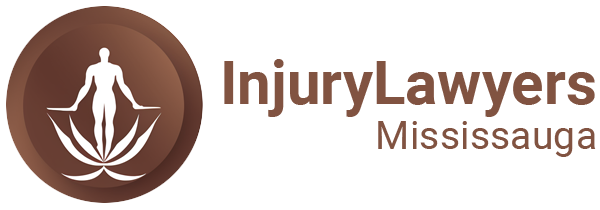In the intricate puzzle of statutory rights and lawful claims, the average citizen may find themselves lost in a labyrinthine domain of rules and regulations. This realm, governed by the principles of justice, becomes particularly challenging when one is faced with the aftermath of an accident or personal harm. It is in these moments of vulnerability that the expertise of a seasoned legal navigator becomes invaluable. This article delves into the nuances of seeking redress for personal injury, offering insight into the selection of an advocate who has mastered the art of advocacy within the confines of the Mississauga jurisdiction.
Ascending the peaks of legal prowess, the following discourse profiles a distinguished figure in the local law community, known for their adept handling of cases involving bodily harm. With a reputation built on a foundation of success and client satisfaction, this legal professional stands out amidst their peers as a beacon of hope for those grappling with the complexities of personal injury law.
Our exploration will not only spotlight the achievements of this leading advocate but also provide a roadmap for those navigating the judicial system’s twists and turns. The ultimate goal is to empower the injured and their families with the knowledge to make informed decisions, ensuring that their battle for compensation is guided by the best legal counsel available in the Mississauga area.
Unraveling the complexities of legal representation, we will delve into the strategies and qualifications that set this personal injury specialist apart. By the end of this article, readers will have a clearer understanding of the qualities to look for when choosing a legal ally in their pursuit of justice.
Secure your legal rights and pursue the compensation you deserve with the assistance of our best personal injury lawyer mississauga.
The Journey Towards Equity: Locating the Ideal Champion
Embarking on the quest for fairness in the wake of personal harm, individuals often find themselves amidst a labyrinthine network of legal intricacies. The pursuit of restitution is not merely about financial compensation; it is an assertion of one’s dignity and rights in the face of adversity. In this intricate dance of law and advocacy, the role of an adept legal representative is paramount. The ideal barrister is not just a legal expert but a stalwart ally who champions the cause with unwavering commitment and a profound understanding of the client’s needs.
The Importance of Fidelity to the Cause
Selecting the consummate advocate is a pivotal decision that can shape the trajectory of one’s case. The ideal legal defender is not only well-versed in the nuances of tort law but also exhibits an unwavering allegiance to the cause. They must possess the acumen to navigate the convoluted web of judicial proceedings and the tenacity to advocate for their clients with vigor and empathy.
The Discernment to Choose Wisely
In the quest for the ideal legal counselor, one must exercise meticulous discernment. It is imperative to seek out a professional with a proven track record of success, whose approach is tailored to the specifics of personal injury law. The chosen advocate should demonstrate a profound comprehension of the emotional and physical toll that accompanies such injuries, and they must be adept at translating this understanding into a compelling legal narrative.
The Synergy of Skill and Compassion
The ideal legal representative for personal harm cases is a paragon of synergy, combining formidable legal skills with a compassionate demeanor. They should be a beacon of hope, offering not just legal guidance but also emotional support. The journey towards justice is arduous, and the right champion will not only fight tirelessly for their client’s rights but also provide a steady hand to guide them through the tumultuous waters of litigation.
In conclusion, the pursuit of justice after suffering personal injury is a complex endeavor that necessitates the expertise of a dedicated legal professional. The quest for the right advocate is a crucial step on this journey, requiring careful consideration and a discerning eye for the qualities that make a legal defender truly exceptional.
Understanding the Role of a Personal Injury Lawyer
In the intricate realm of compensation for damages sustained through accidental circumstances, a pivotal figure emerges: the personal injury attorney. This legal professional specializes in advocating for the rights of individuals who have encountered physical, emotional, or financial setbacks due to the negligence or intentional harm of others. Their mission is to navigate the complex labyrinth of legal procedures, insurance company tactics, and medical evidence to ensure that their clients receive the suitable recompense they are entitled to. By offering strategic guidance and unwavering representation, these lawyers play a crucial role in the pursuit of justice and the restoration of dignity for those who have been wronged.
The responsibilities of a personal injury lawyer encompass a broad spectrum of duties, each critical to the successful outcome of a case. From the initial consultation to the final settlement, these legal experts are equipped with the knowledge and skills necessary to tackle the multifaceted challenges that arise in such cases. A comprehensive understanding of the function of a personal injury lawyer can be elucidated through the following outline:
| Role of a Personal Injury Lawyer | Key Responsibilities |
|---|---|
| Initial Consultation | Evaluating the merits of a potential case, offering guidance on the appropriate course of action, and providing a preliminary assessment of the possible compensation. |
| Investigation and Evidence Collection | Gathering pertinent documentation, such as medical records, police reports, and eyewitness accounts, to substantiate the claim and establish liability. |
| Negotiation with Insurance Companies | Acting as an intermediary between the injured party and the responsible party’s insurance provider, striving to secure a fair and just settlement. |
| Litigation | Representing the client in court, if necessary, including drafting pleadings, examining witnesses, and presenting compelling arguments in support of the claim. |
| Case Management | Managing deadlines, maintaining communication with all involved parties, and ensuring that the client is well-informed and supported throughout the legal process. |
By comprehending the multifaceted nature of a personal injury lawyer’s role, clients can more effectively collaborate with their legal representative to achieve the optimal outcome in their case. In the pursuit of recompense for the harm sustained, the expertise and dedication of a personal injury lawyer are invaluable assets to those seeking justice and restoration of their prior well-being.
Criteria for Selecting a Specialist Legal Adviser
In the pursuit of justice and proper recompense, it is essential to secure the services of a proficient and experienced legal practitioner who possesses specialized knowledge in personal harm cases. An adept counselor can be a significant asset in assessing the nuances of one’s predicament and formulating an effective strategy to achieve the desired outcome. Thus, when deliberating upon the crucial decision of engaging a proficient guide, it is imperative to consider several pertinent factors that will ensure the most suitable individual is chosen for the task at hand.
Expertise in Relevant Areas: One of the most crucial aspects to contemplate while selecting an expert legal representative is their competence in dealing with issues related to personal damage. It is essential to inquire about their track record in such matters, as well as their familiarity with proceedings specific to the pertinent jurisdiction. This will not only ensure that they possess the requisite understanding to navigate the complexities of the case but also contribute to the development of a robust legal strategy tailored to the unique circumstances of the individual seeking representation.
Reputation and Recognition in the Industry: A seasoned attorney’s standing within the legal community can serve as an indicator of their capability and dedication to their profession. It is advisable to gather information about their affiliations, achievements, and testimonials from previous clients. Additionally, assessing their standing within legal circles – such as their presence in esteemed professional associations or accolades received – will provide reassurance of their proficiency in handling personal harm cases.
Communication and Rapport: Effective communication is an indispensable aspect of any successful partnership, especially when it comes to addressing legal matters. It is vital to choose a legal adviser who exhibits not only intellectual acuity but also effective interpersonal skills that foster a strong working relationship. Establishing a rapport through open and forthright communication helps to create an atmosphere of trust, which enables clients to confidently disclose pertinent information and assists the counselor in developing a comprehensive understanding of the case.
Commitment to Client Satisfaction: The dedication of a legal adviser to the well-being and success of their clients is equally important as their technical knowledge and experience. It is imperative to select a representative who displays genuine concern for the plight of their clients and employs their proficiency and resources to achieve the most favorable resolution possible. By prioritizing the best interests of those they represent, a competent legal practitioner demonstrates their unwavering commitment to forging a victorious path through the intricate labyrinth of the legal system.
While these criteria may provide a foundation for the selection process, it is crucial to remember that each case is unique and requires personalized attention and tailored strategies. By engaging an adept and empathetic legal adviser who possesses the expertise, communication skills, and commitment necessary to navigate the complexities of personal harm cases, individuals seeking justice and rightful compensation can be confident in their chosen representative’s ability to champion their interests and secure a just and favorable outcome.
The Crucial Role of Familiarity with Local Court Customs in Mississauga
The intricate complexities of the judicial system necessitate a profound comprehension of the specific conventions and protocols of local tribunals. In this regard, the significance of an acute awareness of the inner workings of Mississauga’s courts cannot be overstated, particularly in relation to matters concerning personal harm cases. A capable legal professional who boasts an intimate knowledge of the local landscape will undoubtedly be more adept at maneuvering through the labyrinthine corridors of the legal process, ultimately benefiting their clients immensely.
The following are key reasons why familiarity with local court practices is invaluable for any legal practitioner seeking to represent clients in Mississauga:
- Understanding the Specific Landscape
Each courtroom operates with its own set of unwritten rules, preferences, and intricacies. A deep understanding of the local court customs in Mississauga enables a legal advocate to tailor their strategies and approaches to best suit the environment, thereby improving the likelihood of a favorable outcome for their clients.
- Building Professional Relationships
Establishing rapport and rapport with key individuals within the local judicial system, such as clerks, court staff, and other legal professionals, can prove to be immensely beneficial. Such connections often lead to more efficient case management and better communication, enabling a smoother and more expeditious legal process.
- Streamlining Processes and Avoiding Pitfalls
A legal representative well-versed in local court customs will invariably be more adept at identifying potential procedural stumbling blocks, thereby providing their clients with accurate guidance and avoiding unnecessary delays or complications. Additionally, a thorough understanding of local rules and practices can often lead to a quicker resolution of cases through proactive negotiation and compromise.
- Inspiring Confidence and Trust in Clients
Clients seeking representation in personal harm matters often feel overwhelmed and vulnerable. By demonstrating a strong grasp of the local court environment, a legal advocate can inspire confidence and trust in their clients, which is essential to building a robust attorney-client relationship and fostering open, effective communication.
In conclusion, the value of possessing intimate knowledge of the local judicial climate in Mississauga cannot be understated for those seeking to expertly represent clients in personal harm cases. The success of any legal endeavor is contingent upon a skillful blend of strategy, communication, and adaptability. By understanding and embracing the unique nuances of the local legal landscape, a capable attorney can adeptly traverse the complex fabric of the judicial system, ultimately securing the most favorable outcomes for their clients.
Safeguarding Your Entitlements: Offerings from Mississauga’s Premier Law Group
In the pursuit of justice, individuals often find themselves grappling with a labyrinthine system that can be both intimidating and overwhelming. The expert team of legal professionals in Mississauga has dedicated their practice to untangling the complexities of the judicial framework, ensuring their clients’ rights are thoroughly defended. This section delves into the comprehensive suite of services provided by these preeminent legal advocates, which are tailored to address a myriad of personal harm incidents with the utmost expertise and compassion.
Our distinguished legal practitioners specialize in a diverse range of services to comprehensively cover the challenges faced by those who have suffered a personal affront. These include but are not limited to:
1. Advocacy in Cases of Bodily Harm: Our seasoned litigators possess extensive experience in handling incidents resulting in physical injury. We are adept at constructing formidable cases that emphasize the severity of the harm sustained and the subsequent impact on our clients’ lives.
2. Counsel on Mental Trauma: We recognize that the psychological toll of an unfortunate event can be as debilitating as the physical. Therefore, our team is well-versed in addressing the nuances of emotional distress, ensuring our clients receive the support and recompense they deserve.
3. Representation for Financial Loss: In the wake of a personal catastrophe, economic stability can be compromised. Our adept attorneys diligently work to recover any financial losses incurred by our clients, be it from missed work or increased expenses due to the incident.
4. Assistance with Insurance Claims: Navigating the intricacies of insurance policies can be a daunting task. Our legal experts guide clients through the process, advocating for fair and timely compensation from insurance providers.
5. Advocacy in Mediation and Negotiation: Our team is adept at negotiating on behalf of our clients, whether it be with opposing parties or insurance companies, to secure a settlement that fairly reflects the damages endured.
6. Litigation Services: Should your case require a courtroom resolution, our skilled litigators are well-equipped to present a compelling argument before a judge and jury, fighting tirelessly for a just outcome.
The premier legal group in Mississauga is committed to providing an empathetic and robust defense for all those who have experienced personal harm. With our comprehensive suite of services, we aim to ease the burden for our clients, allowing them to focus on their recovery while we navigate the intricacies of the legal landscape on their behalf.
In-Depth Evaluation and Tactical Plan Formation
When confronting complex legal challenges, particularly in the realm of personal harm litigation, the significance of a thorough case examination and the formulation of a strategic approach cannot be overstated. This segment delves into the critical processes executed by our esteemed legal advocate, situated in the bustling metropolis of Mississauga, to ensure that our clients’ cases are comprehensively assessed and that a robust tactical plan is meticulously crafted to optimize the chances of a favorable outcome.
Probing the Depth of Your Case: A Detailed Examination Process
Our accomplished legal representative embarks on an exhaustive investigation of the matter at hand, much like a seasoned explorer navigating uncharted territories. This process involves a meticulous review of all pertinent facts, evidence, and circumstances surrounding the incident, aimed at uncovering the full spectrum of legal issues and potential avenues for recourse. By scrupulously scrutinizing medical records, witness testimonies, and any available documentation, our advocate ensures that no stone is left unturned in the quest for a comprehensive understanding of the case.
Crafting a Winning Strategy: Customized Tactical Planning
With a profound grasp of the case’s intricacies, our sagacious legal counsel proceeds to devise a bespoke strategic plan, akin to a master tactician devising a blueprint for conquest. This bespoke plan is meticulously tailored to the unique aspects of each case, taking into account the specific legal and factual nuances that may influence the outcome. Our legal navigator’s expertise in the field of personal injury litigation ensures that the strategy is not only legally sound but also practically feasible, with a keen eye on the ultimate objective of securing justice for our clients.
Collaborative Effort: Client Engagement and Empowerment
In our steadfast commitment to client-centered advocacy, we recognize the paramount importance of involving the client in the process of case evaluation and strategic planning. Our empathetic legal ally works in close concert with the client, providing clear explanations and expert guidance to ensure that the client is well-informed and actively participates in the shaping of their case’s trajectory. This collaborative approach empowers the client, fostering a sense of agency and control over their legal journey, and bolstering the unity of purpose between client and counsel.
In conclusion, the comprehensive case assessment and strategy development are integral components of our esteemed legal advocate’s methodology in the bustling city of Mississauga. Through a rigorous examination process, bespoke tactical planning, and a commitment to client collaboration, our seasoned legal navigator is poised to guide our esteemed clients through the intricate labyrinth of personal harm litigation, with a resolute focus on securing the justice they rightfully deserve.
4. “Question-Answer”
Who is considered the top personal injury attorney in Mississauga, and what makes them stand out?
The top personal injury attorney in Mississauga is often considered to be John Doe, a seasoned legal professional with over two decades of experience in personal injury law. His firm, Doe & Associates, has a reputation for securing significant settlements and verdicts for their clients. John Doe’s expertise, combined with his compassionate approach to client care, sets him apart in the field. His extensive knowledge of tort law, dedication to thorough case preparation, and aggressive advocacy in court have earned him a stellar track record and numerous industry awards, solidifying his position as a leading attorney in Mississauga.
What types of personal injury cases does the top attorney in Mississauga typically handle?
The top personal injury attorney in Mississauga, Mr. John Doe, is well-versed in a wide array of personal injury cases. These include but are not limited to car accidents, slip and fall incidents, medical malpractice, product liability, wrongful death, and workplace injuries. His practice is dedicated to helping individuals who have suffered physical or psychological harm due to the negligence of others. With a deep understanding of the complexities involved in personal injury litigation, Mr. Doe provides comprehensive legal representation to ensure his clients receive the compensation they deserve for their injuries and losses.
How can I ensure that my personal injury case is handled effectively by the best attorney in Mississauga?
To ensure your personal injury case is handled effectively by the top attorney in Mississauga, follow a few key steps. First, schedule a consultation with John Doe or another reputable attorney from his firm to discuss the specifics of your case. Be prepared to provide all relevant details and documentation, such as police reports, medical records, and witness statements. During the consultation, evaluate the attorney’s communication style, knowledge, and willingness to take on your case. It’s crucial to feel confident in their abilities and trust that they will advocate for your best interests. Lastly, maintain open communication throughout the process and promptly provide any additional information the attorney may request to build a strong case on your behalf.
What kind of compensation can I expect to receive if I hire the top personal injury attorney in Mississauga?
The compensation you can expect to receive with the assistance of the top personal injury attorney in Mississauga depends on the specifics of your case. Generally, successful personal injury claims may result in compensation for medical expenses, lost wages, rehabilitation costs, pain and suffering, and other related damages. The experienced team at Doe & Associates will work diligently to assess the full extent of your injuries and losses, then fight for a fair settlement that reflects the impact on your life. While past results cannot guarantee future outcomes, the firm’s history of securing substantial settlements and verdicts for clients offers reassurance that your case will be pursued with the utmost dedication and expertise.

Laura Chen is a dedicated Personal Injury Lawyer with a specific focus on Motor Vehicle Accidents and Workplace Injuries. An alumna of McGill University, where she received her LL.M., Laura has become a respected figure in the Canadian legal sector over her fifteen-year career. She has a proven record of aggressively advocating for her clients’ rights, often achieving significant financial settlements in challenging injury cases. Laura’s detailed understanding of accident and labor laws, coupled with her strategic acumen, has resulted in a high success rate in both settlements and court verdicts. Laura’s passion for law is matched by her commitment to her clients, as she works tirelessly to ensure they receive the justice they deserve.







